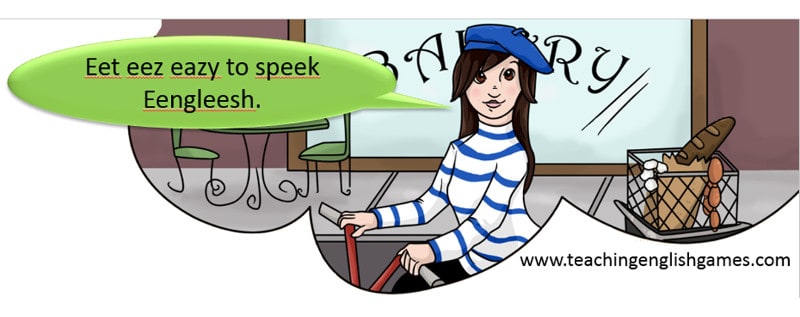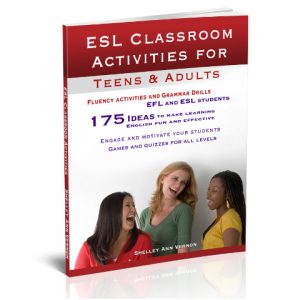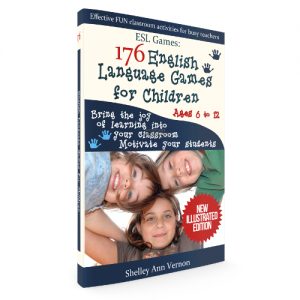Here is a selection of pronunciation games to improve your students’ spoken English. To start with, here’s a calm listening game for any class size.
Pronunciation Hands Up
How to play
This listening game works with phonemes or pronunciation. The teacher repeats a word several times and then unexpectedly changes to another word using a different phoneme. Pick words that students find challenging.
The teacher says ‘lorry, lorry, lorry, lorry, lolly, lolly, lolly, lolly, lorry, lorry, lorry.’ When the students hear the change, they raise their hands. When the change reverts to lorry, students lower their hands.
Make pairs with a small group and award points to the first student to raise their hand. Deduct points for hands going up before the change!
With a larger class, split students into teams. Count the number of times you say ‘lolly’ before all students on that team have their hands up. Then, repeat with team two and award the point to the fastest team.
Tips

A big challenge is to let the students take over from you with the speaking. This task certainly encourages them to focus on how they pronounce words.
Try ship and sheep with Spanish students, pass and path with French pupils, and lorry or lolly with Japanese learners.
Compare and contrast pronunciation
Compare these words and meanings!
Ship and sheep
Sink and think (th)
Eat and heat (h)
Earth and hers (th and s)
Right and light (r and l)
Cat and cart
Hour and are
Tail and tell
Bill and pill (b and p)
Pronunciation Pictures
Now for a calm speaking pronunciation game, suitable for any class size, even very large classes.
How to play
To start, put a selection of contrasting words or pictures on the board that your class confuses. Then, in pairs, let one child tell the other what to draw from those on the board. The children will understand how important accurate pronunciation is if their partner draws something different to what they thought they said! For example, a Japanese student may have difficulty saying lorry and lolly, so these would be two words or pictures on the board.
However, if you write a selection of totally unrelated sounds, this activity will not be as effective. The idea is to put up very similar-sounding words so that children can concentrate on saying them correctly so that their partner draws the correct item.
Finally, this activity can be a one-off or ongoing. For example, the pictures could go on the walls, and the children add to them any time they think of another matching word.
Other posts on pronunciation
Teaching-English: Will I ever improve my pronunciation?
Fun resources to teach pronunciation with games
-
Sale Product on sale
 Games and Activities for Teens and Adults
Games and Activities for Teens and Adults€19.97Original price was: €19.97.€15.33Current price is: €15.33.Rated 5.00 out of 5 based on 12 customer ratings -
 ESL Online Games€19.97Rated 5.00 out of 5 based on 4 customer ratings
ESL Online Games€19.97Rated 5.00 out of 5 based on 4 customer ratings -
Sale Product on sale
 ESL Games book for primary & middle school children
ESL Games book for primary & middle school children€19.97Original price was: €19.97.€15.33Current price is: €15.33.Rated 5.00 out of 5 based on 2 customer ratings




3 thoughts on “Pronunciation Games”
Wonderful games! I’ll try them with my adult students. They’re always worried about pronunciation and they love playing as well
Thank you a lot for all your wonderful ideas, dear Shelley!!
Really interesting post!